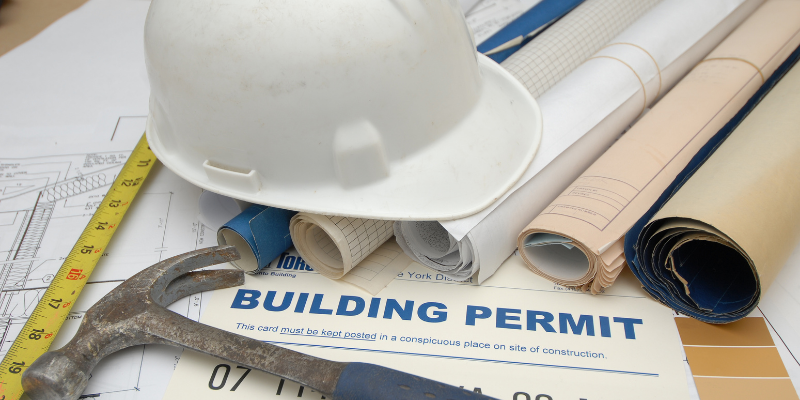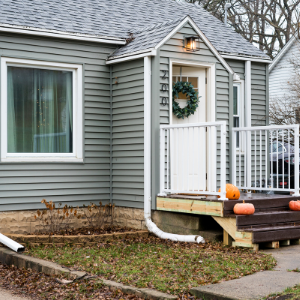
Navigating Real Estate Regulations: Twin Cities Housing Market Insights

Adopting a meticulous strategy is critical when selling the Twin Cities real estate market, especially for homes with code violations. Listing regulations are essential within Minneapolis and St. Paul proper; thus, understanding local housing laws is pivotal.
Working with experts who understand the legal infractions involving a specific home will significantly assist in removing the required legal filing burdens while ensuring no unneeded changes are made, balancing legal compliance and red tape.
Moreover, thorough home inspections can uncover encroachments to dwelling regulations, enabling sellers to prioritize enduring repairs or negotiate buyer incentives more strategically. Advertise the property as a renovation-ready dwelling to appeal to investors looking for renovation projects in the upwardly mobile areas of the Twin Cities.
Full disclosure of bounding issues encourages a trust-based environment around negotiations, thus quickly enabling discussions through automatic, realistic negotiations. Implementing this in the ever-changing market enables hovering around the problems rather than disregarding them, unlocking opportunities for code violation, and overcoming restrictions on selling. These methods adapt well to local laws and regulations.
Can You Sell a House with Code Violations?
Navigating the sale of a house with code violations in the Twin Cities real estate market can be challenging, but it is certainly possible with the right strategies. While determining how to sell a house with code violations, it is best to carefully evaluate the nature of the infractions and how severely they may impact a buyer’s willingness to purchase the property.
Working with a savvy professional who understands the market and specializes in homes with code issues can be very helpful, as they can offer feedback on the market and buyer priorities. A working strategy is to sell the property as it is. This “as is” method involves disclosing code violations but pricing the home low enough to entice buyers or investors who would willingly repair the house.
If you’d rather skip the red tape, Henry Home Buyer buys homes for cash as-is in Anoka—no need to worry about fixing code violations or navigating the usual selling headaches.
Another approach is obtaining quotations for the necessary work so the seller can offer to execute some of the essential repairs beforehand or incorporate some of the estimates into negotiations to assure the buyers that their concerns will be addressed. Also, focusing on selling the home’s desirable features and location where it makes sense within the Twin Cities helps mitigate worries about code violations.
By utilizing these strategies, sellers can manage the obstacles associated with selling a home that is not compliant with codes, also how long can your home stay unoccupied becomes an important factor when dealing with vacant or neglected properties, ensuring they reach buyers willing to pay for such homes.
What Happens If My House Is Not Up to Code?

In the Twin Cities housing market, selling a non-code-compliant house could pose challenges. Code violations may discourage potential buyers, creating barriers to purchase.
In this market, non-code-compliant homes may fail to sell entirely or receive very low offers due to buyers negotiating to account for the costs of necessary repairs. Mortgage lenders often refuse to finance homes with significant code violations, leaving your potential buyers to those who pay through cash or other non-conventional means.
In addition, local laws may obligate you to disclose known violations to the buyers, which negatively affects the sale and creates the risk of contract breach and legal liability for undisclosed violations and unresolved discrepancies post-sale. To sail through these challenges, consider getting pre-listing inspections, resolving critical gaps, or revamping pricing to draw those willing to purchase and invest in the home and remodel.
A real estate professional who knows the Twin Cities market will help strategize how to sell a home with code compliance issues.
Can I Get a Mortgage on a House with Code Violations?
Obtaining a mortgage for a house with code violations in the Twin Cities might be challenging, but it is still possible. Most lenders avoid granting mortgages on homes that do not meet minimum safety and structural standards, as they pose some risks and extra expenses.
However, some strategies can help overcome these barriers. One approach would be to look for lenders specializing in the Twin Cities housing market. Such lenders will likely offer rehabilitation or FHA 203(k) loans, which cover the purchase price and repairs for homes with code violations.
Advising closely with skilled real estate professionals who have handled such properties tends to help negotiate acceptable issues from both the buyer’s and lender’s perspectives.
Understanding the nature of violations helps build the case when applying for a mortgage, especially if there are estimates for required repairs. By leveraging local expertise and strategic planning, it is possible to navigate the complexities and challenges of purchasing a home with code compliance issues in the vibrant Twin Cities real estate market.
What Is the Hardest Month to Sell a House?

Knowing what month is the hardest to sell a house, especially with code violations, helps devise plans to tackle the Twin Cities’ real estate market. Generally, the winter months are pretty difficult for sellers.
Because of the weather conditions in the Twin Cities, January is sometimes considered the worst month to sell a house. This can discourage people from coming to open houses or showings. Additionally, there is usually low buyer interest and activity during this season.
These factors may be further compounded for homeowners dealing with code violations because their homes are proposed to have more work done to fix the code infraction issues, which is much more challenging to do in the winter. Many sellers use strategies to navigate these hurdles, such as undercutting the asking price and marketing the home’s value despite the existing codes.
Working with local experts who specialize in homes with code violations can greatly enhance marketing strategies to capture buyers’ attention, even in the slowest months.
If you’re looking to sell a Twin Cities home with code violations, skip the repairs and delays—Henry Home Buyer buys houses as-is for cash, making the process quick, simple, and stress-free. Contact us today at (612) 430-8822 to get your offer!
| MINNESOTA | SALES | REAL ESTATE LAWS | BUILDING CODES | CITY OF MINNEAPOLIS | LAWS |
| PRICE COMPARISON | OPTIONS | PERSONAL LOANS | LIENS | INVESTMENTS | PROPERTY VALUE |
| APPRAISAL | PROPERTY APPRAISAL | MARKET VALUE | HOME INSPECTORS | HOME INSPECTION | ZONING LAWS |
| ZONING | NATIONAL ELECTRICAL CODE | NATIONAL ELECTRICAL CODE (NEC) | HEALTH | CONTRACT LAW | CONTRACTS |
| CONTRACTUAL | BATHROOM | TRANSPARENCY | SMOKE ALARMS | SMOKE | GFCI |
| GROUND-FAULT CIRCUIT INTERRUPTER | PLUMBING | MONEY | INTERNATIONAL BUILDING CODE | INTERNATIONAL RESIDENTIAL CODE | INTERNATIONAL BUILDING CODE (IBC) |
| IRC | HOMEOWNERS ASSOCIATIONS | HOA | HOMEOWNERS ASSOCIATIONS (HOAS) | EXPENSE | EQUITY |
| CONSTRUCTION | ROOF | PRESSURE | MARKETING STRATEGIES | LEVERAGE | |
| KITCHEN | JURISDICTION | IBUYER | INSPECTOR | FIRE HAZARDS | FIRE CODE |
| FAILURE | ELECTRICAL SYSTEMS | DEED |
